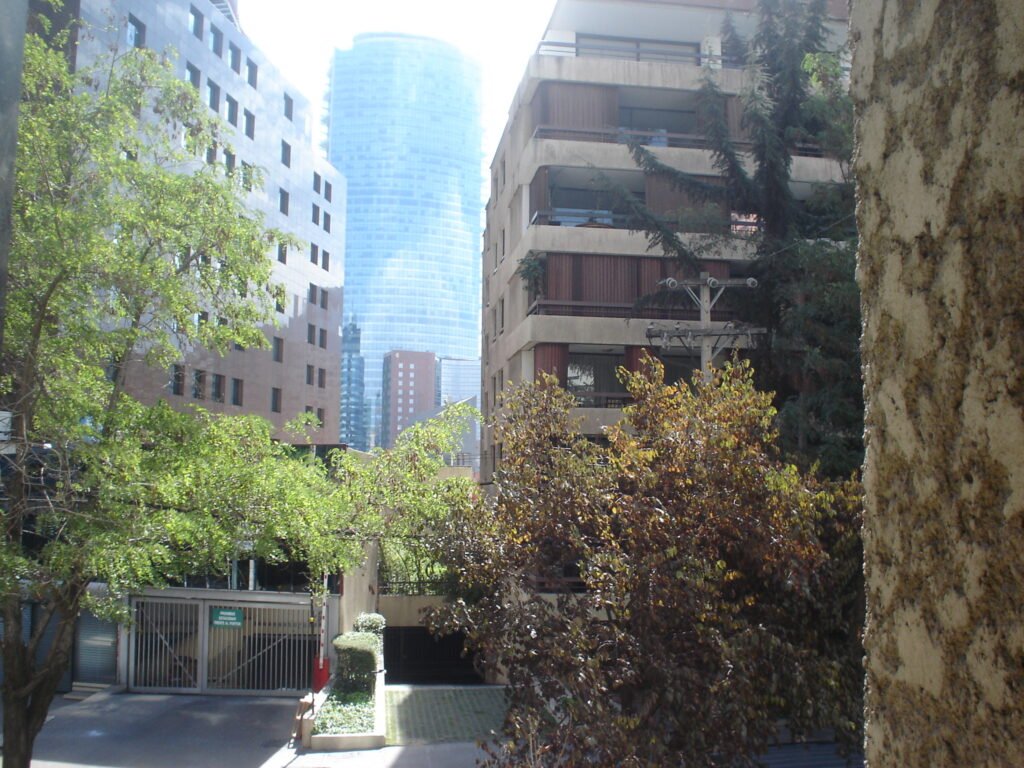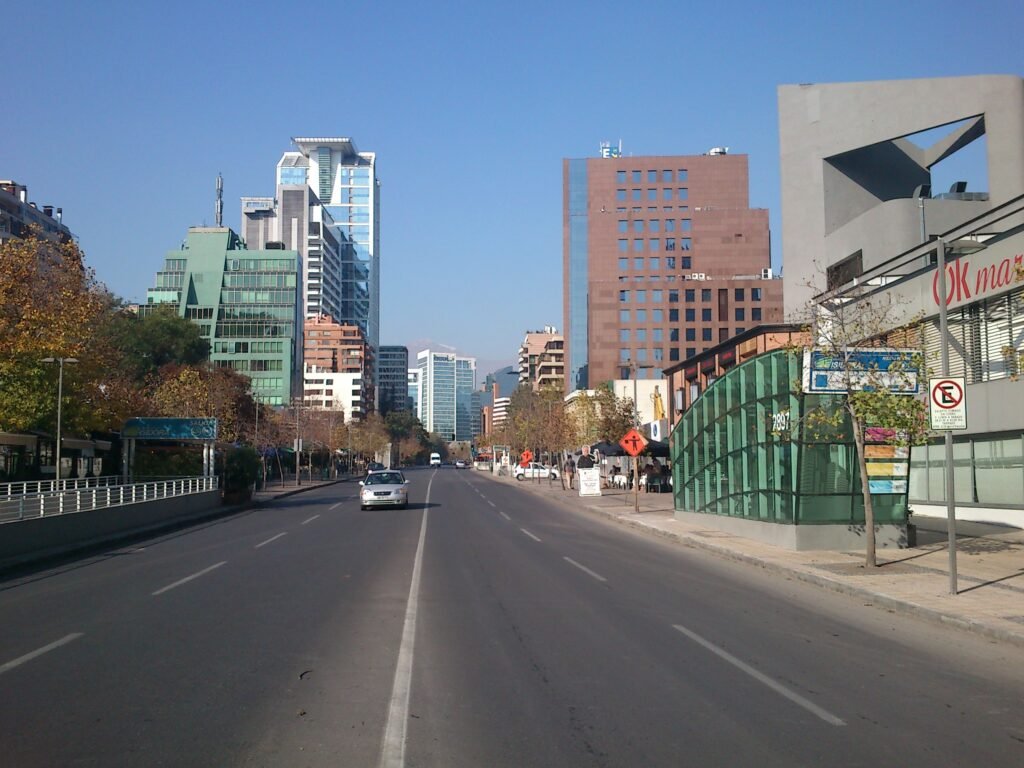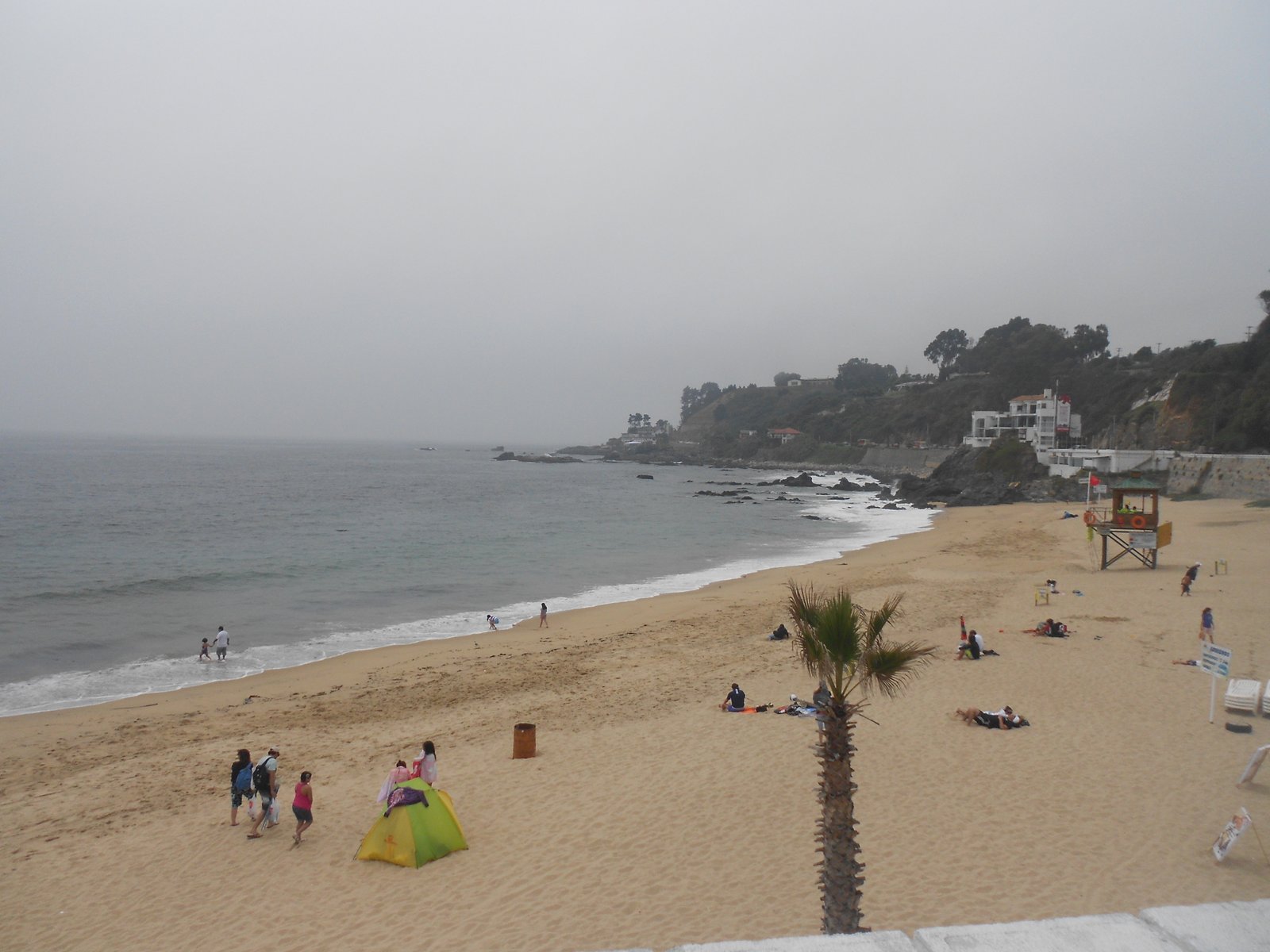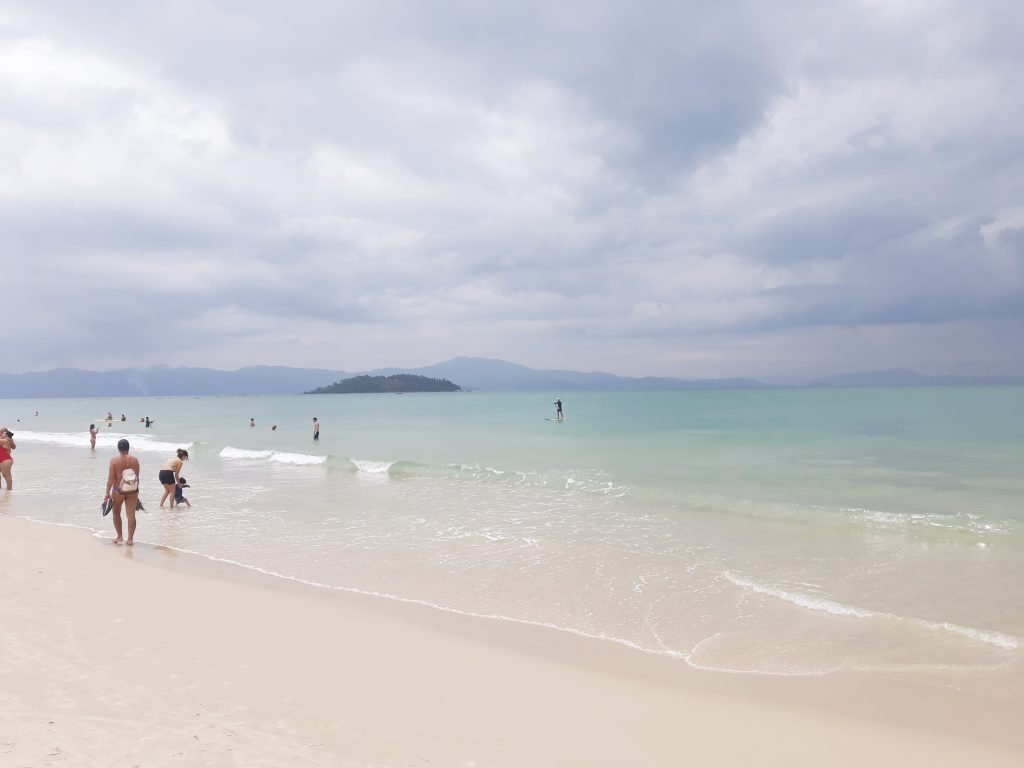The Best Places, Cost of Living, and Everything Else You Need to Know About Living in Chile
Our team writes from experience. Yes, we also use reliable and updated data, but always together with personal experiences from our team and audience. With all that we mind, we affirm with no doubt that in 2023, if you are living in Chile, you are in the best place to live in South America…. yet.
Yes, yet. One of our team members lived in Chile 12 years ago, and many of our readers live in Chile today, and comparing their opinions is clear that while countries like Paraguay improved drastically in the last decade (this article lists the best Latin American countries to live in 2023), Chile didn’t show many improvements and even worsened in some aspects.
But here is the catch:
The country had such a significant lead over the other South American countries that even by 2023, despite other South American countries closing the gap somewhat, Chile is still the best country to live in South America.

Why is Chile considered THE best country to live in South America for Expatriates?

Let’s first use some data, before jumping into the personal experiences and stories of our team members and readers about life in Chile (and there is a ton of helpful insights from them in the next few paragraphs).
The table below shows the human development index (the most used indicator worldwide about the standard of living), the living cost index (more about the cost of living in a few paragraphs) and the homicide rate (an important indicator of violence), and then ranks each country in Latin America according to these 3 factors.
| Position | Country | Human Development Index (HDI) | Living Cost Index | Homicide Rate | HDI Rank | LCI Rank | Safety Rank | Final Score |
| 1 | Chile | 0.851 | 37.79 | 4.4 | 1 | 15 | 1 | 10 |
| 2 | Argentina | 0.845 | 32.95 | 5.32 | 2 | 12 | 2 | 10 |
| 3 | Ecuador | 0.759 | 30.54 | 5.8 | 10 | 8 | 3 | 17 |
| 4 | Bolivia | 0.718 | 27.22 | 6.22 | 13 | 3 | 4 | 19 |
| 5 | Paraguay | 0.728 | 29.25 | 7.14 | 12 | 5 | 5 | 20 |
| 6 | Panama | 0.815 | 44.56 | 9.39 | 5 | 16 | 9 | 22 |
| 7 | Peru | 0.777 | 35.14 | 7.91 | 7 | 14 | 8 | 22 |
| 8 | Costa Rica | 0.82 | 44.58 | 11.26 | 3 | 17 | 11 | 23 |
| 9 | Colombia | 0.767 | 26.08 | 25.34 | 8 | 1 | 14 | 23 |
| 10 | Uruguay | 0.817 | 44.62 | 12.06 | 4 | 18 | 12 | 25 |
| 11 | El Salvador | 0.673 | 30.11 | 7.8 | 15 | 7 | 7 | 26 |
| 12 | Brazil | 0.765 | 28.85 | 27.38 | 9 | 4 | 15 | 26 |
| 13 | Nicaragua | 0.66 | 29.58 | 7.19 | 17 | 6 | 6 | 26 |
| 14 | Mexico | 0.779 | 30.96 | 29.07 | 6 | 10 | 16 | 27 |
| 15 | Dominican Republic | 0.756 | 33.58 | 10.05 | 11 | 13 | 10 | 28 |
| 16 | Venezuela | 0.711 | 27.17 | 36.69 | 14 | 2 | 17 | 32 |
| 17 | Guatemala | 0.663 | 32.17 | 22.5 | 16 | 11 | 13 | 35 |
| 18 | Honduras | 0.634 | 30.68 | 38.93 | 18 | 9 | 18 | 41 |
As you can see, Chile has the highest Human Development Index (0.851) and the lowest homicide rate (4.4) among all 18 countries.
These are not the only indicators where Chile is a Latin American outlier.
- Chile ranks 33rd (among 141 countries) in the Global Competitiveness Index, making it one of the most competitive economies in South America.
- Chile is one of the best countries to start a life abroad with no money (but a good business plan).
- According to GoAbrod, Chile is one best countries to study medicine on the planet.
- Chile is the 4th best Spanish-speaking country to visit in 2023 and receives 7.2 million international tourists per year.
- Together with Florianopolis and Buenos Aires, Santiago de Chile is often considered one of the best cities in South America for expats and digital nomads.
Ok, ok, so all this data shows that, at least from a purely objective point of view, Chile is way ahead of the other South American countries in multiple aspects.
But let’s make it more personal and see what real people think.
Chile’s appeal: What makes it the best place to live in South America?

Now time for some real stories of people that really lived in Chile, including me who wrote this article.
I lived in Chile a few years ago, more specifically in Santiago in a district called Las Condes.
Since I moved out from Brazil, a quite dangerous country, Chile felt very safe to me. It was also impressive the quality of the public transport. To put it into perspective, Santiago (population: 5.6 million residents) has almost 140km of subway lines.
Meanwhile, São Paulo, one of the most developed large cities in Brazil, has only 79km of subway lines despite being almost 3 times larger than Santiago!
The city also has plenty of parks and green areas, including the magnificent Cerro San Cristobal. I loved hiking there.
Quality of life (including food) was superb. After leaving Santiago in 2013, I lived in one of the richest countries in the world (Qatar) and in Europe, and I believe that the standard of living I experienced in the Chilean capital was similar to European standards.
However, a lot changed since I moved out from Chile.
This is especially true in terms of violence and economic dynamics. Yes, Chile is still the safest country in South America and has the highest GDP per capita, but in the last 10 years went a bit sour.
As Andres Pilquil Varas stated here, the best advice for someone living and working in Chile nowadays is:
- Respect the 3 W’s: “No andar a horas weonas, con gente weona en lugares weones”. Roughly translated to “Don’t be at stupid hours with stupid people at stupid places”.
- We have low corruption compared to our neighbors. Don’t even try to bribe law enforcement; you will make it to the news and have a really bad time.
- Don’t go around the main tourist places with your expensive cameras hanging from your neck and all your money and documents in a very visible fanny pack; that’s like having a huge ass neon sign on your head saying “Rob me.”
Preliminary data shows that the homicide rate in Chile increased to 4.7 in 2022. While still lower than any other Latin American country, it worsened considerably from only 10 years ago, when it was 2.8, a 67.8% increase in only 10% years.
The expat community in Chile: How well-established is it?

The expat community in Chile is quite diverse and well-established, with people from all over the world choosing to call this South American country their home.
According to data from Meetup, there are over 22,000 members in various expat groups in Chile. These groups are often organized around language exchange and social activities, with the largest ones being in Santiago and Valparaíso.
For instance, the Santiago Spanish and English Language Exchange Meetup has 8,871 members, while the group Spanglish Party in Santiago has 6,854 members.
In terms of nationalities, the expat community in Chile is quite varied. According to InterNations, a global expat community, the top nationalities in their Chilean communities are Americans, Venezuelans, Argentinians, and Colombians.
As for where expats live, the majority seem to be concentrated in major cities like Santiago and Valparaíso.
Living in Chile: Pros and Cons
Most of the items below refer to life specifically in Santiago. For the pros and cons of living in the smaller cities and rural parts of Chile, we make a separate section after this one.
The Pros of Living in Chile
The leisure life in Chile: From ski slopes to beach fronts.

Chile’s diverse landscape offers a wide range of leisure options. From the beaches of Viña del Mar to the snowy peaks of the Andes (and cool ski resorts not far from Santiago), you will have all seasons of possible activities.
Moreover, the country’s commitment to environmental conservation has led to the establishment of numerous national parks and reserves.
There are also multiple historical sites, museums, and vibrant local festivals that offer a glimpse into the country’s past and present.
Entrepreneur-Friendly Environment
Chile has a reputation for being one of the most entrepreneur-friendly countries in Latin America. The government has implemented simple entrepreneurial laws to encourage business startups.
The country’s “Start-Up Chile” program, for instance, offers equity-free funding to qualified startups, making it an attractive destination for entrepreneurs.
Furthermore, the country has a robust infrastructure, including reliable internet and transportation networks. This infrastructure supports business operations and makes it easier for entrepreneurs to establish and grow their businesses.
The country’s strategic location also provides easy access to other markets in Latin America.
Low Cost of Living
More about it in a few paragraphs. Check also our article about the cheapest cities to live in South America.
But also it isn’t for everyone: The cons of living in Chile.
Centralization of Opportunities
Chile is highly centralized, with most opportunities concentrated in the Santiago-Valparaiso axis.
This means that outside of these areas, job opportunities, educational institutions, and healthcare facilities may be limited. This centralization can lead to a lack of development in rural areas and can make life challenging for those living outside the main cities.
Furthermore, this centralization can lead to overcrowding in the main cities, resulting in high housing costs and traffic congestion.
Political Instabilities

The recent political instabilities during the last few years have created a sense of uncertainty in Chile.
Protests and civil unrest have become more common, leading to disruptions in daily life and business operations. This instability can deter potential investors and expats, who may be concerned about the country’s future direction and the potential impact on their investments or lifestyle.
Uncertainty also leads to fluctuations in the currency and stock market, making it more challenging for businesses to plan for the future.
Moreover, these political instabilities can lead to social tensions. Protests and civil unrest can disrupt daily life and create a sense of insecurity. There are even cases of terrorism in the southern regions that shocked the country.
Language Barrier
While English is taught in schools and is spoken in the business sector, Spanish is the dominant language in Chile.
Expats who do not speak Spanish may face communication challenges in their daily life. This can make it difficult to integrate into the local culture, access services, and form connections with locals.
While many services are available in English in the capital, in rural areas, services may only be available in Spanish.
The type of Spanish spoken in Chile is also different from other Latin American countries and Spain, and I personally found it quite challenging, but more about it in a few paragraphs.
How does the cost of living in Chile compare to the US?
In our quest to understand the cost of living differences between Chile and the United States, we turned to Numbeo, a large crowdsourced database of prices. Numbeo provides current and timely information about world living conditions including cost of living, housing indicators, health care, traffic, crime, and pollution.
For our comparison, we chose Santiago, the largest city in Chile, and Chicago, a major city in the United States. Here’s what we found:
- A meal in an Inexpensive Restaurant: A meal in Santiago costs around $10.00, while in Chicago it’s about $20.00. This means that dining out in Santiago is approximately 50% cheaper than in Chicago.
- Monthly Pass (Regular Price) for Public Transportation: In Santiago, it’s around $45.00, while in Chicago it’s $105.00. Public transportation in Santiago is thus about 57% cheaper.
- Basic (Electricity, Heating, Cooling, Water, Garbage) for an 85m2 Apartment: The cost in Santiago is about $83.00, while in Chicago it’s $139.00. Basic utilities are approximately 40% cheaper in Santiago.
- 1 min. of Prepaid Mobile Tariff Local (No Discounts or Plans): In Santiago, it’s $0.14, while in Chicago it’s $0.15. The cost is nearly the same, with Santiago being just about 7% cheaper.
- 1 Pair of Jeans (Levis 501 Or Similar): The cost in Santiago is about $61.00, while in Chicago it’s $50.00. Interestingly, jeans are about 22% more expensive in Santiago.
- 1 Summer Dress in a Chain Store (Zara, H&M, …): In Santiago, it’s around $34.00, while in Chicago it’s $40.00. This means that clothing in Santiago is approximately 15% cheaper.
- 1 Pair of Nike Running Shoes (Mid-Range): The cost in Santiago is about $76.00, while in Chicago it’s $80.00. Athletic shoes are roughly 5% cheaper in Santiago.
Chile’s hidden costs: What to expect.
One of the most remarkable hidden costs I saw there is healthcare.
While Chile has a public healthcare system, many residents opt for private healthcare due to the better quality of service. I don’t recommend you rely on public health care for most situations, and private health insurance can avoid headaches.
However, private healthcare can be expensive, and insurance premiums can vary widely. It’s important to factor in these costs when budgeting for life in Chile. Additionally, prescription medications can be costly, and certain treatments may not be covered by insurance.
Lastly, medical care in Chile is of good quality, which is crucial for families with kids.
As travel insurance for visiting Chile, we recommend Ekta.
Money-saving tips for expats living in Chile.
Here are some other things to know before moving to Chile as an expat:
- Research Areas You Should Avoid: Just like any other country, Chile has areas that are more expensive than others. Research and choose a location that fits your budget. Santiago, while being a great place to live, can be more expensive than other cities like La Serena or Valparaiso.
- Learn Spanish: While you can speak English in Chile, it isn’t widely spoken outside of business and tourist areas. Learning Spanish can help you negotiate better prices and avoid the “gringo” price inflation that can occur.
- Use Public Transportation: Chile has one of the best public transportation systems in Latin America. Using public transportation instead of owning a car can save you a significant amount of money.
- Buy Local Produce: Chile is a great place for fresh fruits and vegetables, especially in southern Chile. Buying local produce at markets can be cheaper and healthier than buying imported goods at supermarkets.
- Contact Real Estate Agencies: When searching for housing in Chile, it’s beneficial to contact real estate agencies. They can help you find affordable options that may not be listed online.
- Visit the country before deciding to move there! In these cases, Chile might demand that you apply for a tourist visa and valid international travel and health insurance. As travel insurance for visiting Chile (and any country in South America), Ekta is a good choice.
- Network with Other Expats: Making expat friends can provide valuable insights into living cost-effectively in Chile. They can share their experiences, tips, and tricks to help you navigate your new life and avoid common financial pitfalls.

Best places to live in Chile: City life vs the tranquility of rural areas.
Santiago de Chile is the country’s hearth and a Latin American hub, offering everything you need to know about city life. As an expat in Santiago, you’ll likely need to adapt to the fast pace of life. The city offers primary and secondary job markets, making it one of the best places to find a job in Chile.
Valparaiso, named the best destination in terms of its vibrant arts scene, offers a unique blend of city life and coastal charm. As an expat guide would tell you, it’s a place where you can enjoy a good quality of life, with a slower pace and plenty of cultural activities.
Viña del Mar, often compared to coastal cities in developed countries for its modern infrastructure, is a popular choice for North Americans and Europeans. It’s a great place to retire to Chile, offering high-quality medical care, beautiful beaches, and a relaxed lifestyle.
La Serena, known for its tranquility, is ideal for those thinking about moving to Chile for a quieter life. It’s often chosen by expatriates who prefer a slower pace, yet still want access to amenities. The city offers a balance between city conveniences and the charm of rural areas.
Below you will discover a bit more about expat life in each of these cities.
Why Santiago is a top choice for Expats in Chile

Jose Cox, when writing about life in Santiago, said something that I also found very valid after living there: Chile’s high centralization is a pro and a con at the same time, and that depends on which side you are looking at:
When compared to other cities in the country, the best thing about living in Santiago is that you WILL find everything you need. Period. One of Chile’s biggest problems is that it is too centralized. Almost everything happens in Santiago, and you can get everything you need here. You can probably find whatever you are looking for. That’s not true of the other cities in Chile, and as you might expect, it gets harder to find things that might be considered too specific the farther you get from Santiago.
Santiago’s digital infrastructure, cost-effectiveness, and business-friendly environment make it a top choice for expats and particularly attractive for young professionals.
The capital is also the economic and cultural hub of Chile, offering a wealth of job opportunities, particularly in sectors such as finance, technology, and education. The city has a robust economy and status as a regional business hub in the Andean region.
Santiago also offers a high standard of living, especially on the eastern side of the city. Eastern Santiago boasts a well-developed infrastructure, including an efficient public transportation system, high-quality healthcare facilities
Living costs are higher than in the rest of the country (more about it in previous paragraphs), but are still lower than in most large cities in Europe and North America.
Valparaíso and Viña del Mar

Valparaiso-Viña del Mar, often referred to as “Valpo” and “Viña,” is an area known for its vibrant scene, historic architecture, and stunning seaside views, making it an attractive destination for expats seeking a dynamic and visually inspiring environment.
The region also boasts a high quality of life, with excellent dining options, thriving nightlife, and numerous outdoor activities. The presence of several universities contributes to a lively and youthful atmosphere, and the area’s vineyards offer a taste of Chile’s renowned wine industry.
Finally, the Valparaiso-Viña del Mar urban area is well-connected to Santiago, Chile’s capital, via one of the main highways of the country. This provides easy access to the amenities and opportunities of a major city while maintaining the charm of coastal life.
La Serena
La Serena, the second oldest city in Chile, offers a unique blend of historical charm and modern amenities. The city’s colonial architecture, beautiful beaches, and warm climate make it an attractive destination for expats seeking a relaxed lifestyle in a picturesque setting.
The cost of living in La Serena is another significant advantage. It is more affordable than Viña del Mar, making it an excellent choice for expats seeking a coastal lifestyle on a budget. Housing, dining, and entertainment options in La Serena tend to be more cost-effective.
It is, however, more distant from the capital than Viña del Mar or Valparaíso.
What Is the Percentage of Chilean Living in Rural Areas and Smaller Cities
Outside of small islands and city-states, Chile is one of the most concentrated countries in the world.
The Chilean capital is the most populous city in the country. With a population of approximately 7,112,808 people, it alone has 37.4% of the total population of Chile, which is estimated to be around 19 million.
The other 4 largest cities in the country are Valparaíso, Concepción, La Serena, and Antofagasta. Here are their populations:
- Valparaíso: 967,000
- Concepción: 930,000
- Antofagasta: 425,000
- La Serena: 400,000
The combined population of these cities and Santiago is approximately 9,834,808, which represents about 51.8% of the total population.
So only 48.2% of all Chileans live in cities with less than 400 thousand residents, and only 12.09% live in rural areas.

How to strategically plan your move to Chile?
Here are the basic steps.
- Check Visa Requirements: The first step is to understand the visa requirements for living in Chile. Determine which type of visa you’re eligible for and understand the application process. Check the next section for more information on this.
- Research: Conduct thorough research about Chile’s culture, cost of living, job opportunities, and lifestyle to get a clear picture of what to expect.
- Plan Your Finances: Develop a comprehensive budget that includes costs like travel, housing, living expenses, and unexpected costs.
- Secure a Job or Income Source: If you’re not retiring, ensure you have a job or steady income source lined up.
- Find a Place to Live: Contact real estate agencies or search online to find suitable housing within your budget.
Overall, expat living in Chile can be a rewarding experience, especially with the right preparation and expectations.
Visa options for expats: What you need to know.
Chile offers a variety of visa options to accommodate different expat profiles, each with its own set of requirements and benefits.
For those married to a native Chilean, the most suitable option is typically the Temporary Residence Visa for Spouses. This visa allows the holder to live and work in Chile and is valid for one year, after which it can be converted into permanent residency. The main requirement is to provide proof of marriage to a Chilean citizen.
Retired American or European citizens looking to live in Chile can apply for the Retirement and Periodical Income Visa. This visa is designed for individuals who have a regular income from a pension or other source that allows them to support themselves without working in Chile. Applicants must provide proof of their income and show that it will continue to be received while they are in Chile.
Entrepreneurs, on the other hand, may be interested in the Start-Up Visa, also known as the Visa Tech. This visa is part of a government initiative to attract foreign entrepreneurs to start their businesses in Chile. The program provides a one-year visa, which can be extended, and offers a range of services to help entrepreneurs. We wrote more about it in this article.
Decoding Chilean Spanish: A quick linguistics guide for expats.
Chilean Spanish is known for its distinct pronunciation, vocabulary, and grammar, making it unique among Spanish dialects.
Pronunciation in Chilean Spanish often involves dropping the final ‘s’ and ‘d’ sounds, a feature known as “aspiration” or “elision”. This can make spoken Chilean Spanish sound fast and weird to the untrained ear.
Chilean Spanish also has a rich array of local slang, known as “Chilenismos“. These words and phrases are unique to Chile and can be confusing for those accustomed to other Spanish dialects.
Finally, here are some common Chilean expressions: “cachai” (do you understand?), “pololo/polola” (boyfriend/girlfriend), “pucha” (darn), “fome” (boring), and “bacán” (cool). Familiarizing yourself with these can help you navigate daily conversations more smoothly.
Education in Chile: What to consider for your expat kids?
Education in Chile for expat kids is a topic of interest for many. Chile, a Latin American country, is often chosen by expats for its stable economy and quality education. However, it’s important to know about living in Chile before moving, especially regarding education.
Chile isn’t like, for example, Europe when it comes to public education. Private and international schools still offer much higher standards than public schools.
When you search in Chile for schools, you’ll find many bilingual private schools. Famous ones include the Schweizer Schule Santiago, The Southland School, Chartwell International School, The International Preparatory School, and The International School Nido de Aguilas. These schools offer a mix of Chilean, British, Swiss, and American curricula.
However, there might be a disadvantage. The school year in Chile starts in March and ends in November, unlike the US. Therefore, your kids might have to adjust to this schedule.
If you enjoyed this article about living in Chile (the best country to live in south America), here are a few other reading suggestions for you:
The 7 Countries With The Worst Work-Life Balance in The OECD
The Best Cities for Remote Workers in 2023
Levi Borba is the founder of The Expatriate Consultancy, creator of the channel The Expat, and best-selling author. Some of the links in this article may be affiliate links, meaning that the author will have a commission for any transactions.




